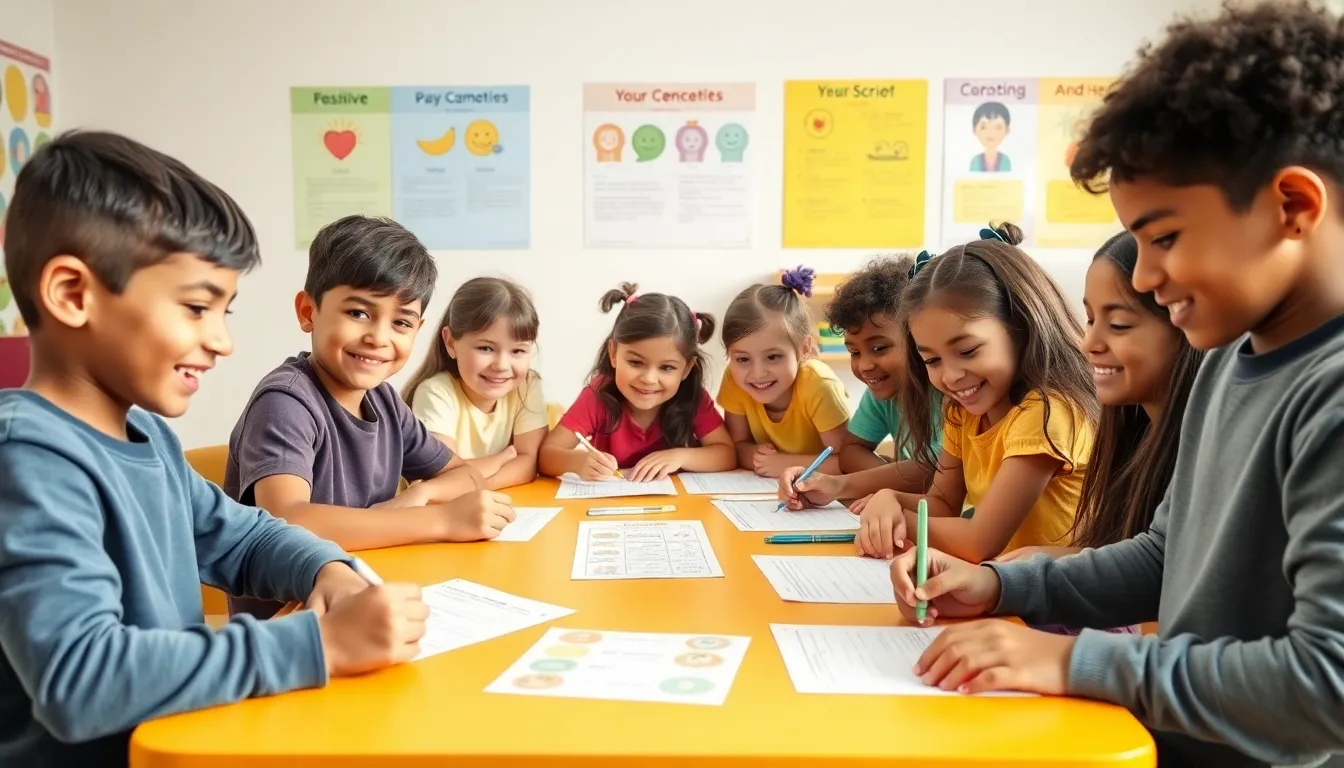Kids face a unique set of challenges today, from navigating school to managing friendships and everything in between. Mental health is no joke, yet many overlook the needs of young minds. Enter mental health worksheets: the unsung heroes in this journey. These engaging and colorful tools can help kids express feelings, learn coping strategies, and best of all, they can do it while having fun. Imagine equipping a child with the tools to understand and manage their emotions like a superhero in training. So, buckle up as we explore how these worksheets can transform mental health for our little ones.
Table of Contents
ToggleUnderstanding Mental Health In Children

Understanding mental health in children is crucial. Unlike adults, children often do not have the vocabulary to express their feelings. They may not even recognize what they’re experiencing. Whether it’s anxiety about a test, disappointment from a friend, or excitement for a birthday, these emotions swirl inside them like a tornado. Mental health is about how we think, feel, and act. It’s also how we handle stress and relate to others. Teaching children about mental health helps them recognize their feelings and understand that it’s okay to express them.
From school challenges to family dynamics, every child is different. Children may exhibit stress in various ways, like tantrums or withdrawal. Understanding these manifestations allows parents and educators to support them effectively. Awareness is the first step towards fostering healthy emotional well-being.
The Importance of Mental Health Worksheets
Why are mental health worksheets important? These tools encourage self-expression and provide structured knowledge about emotions. Children can gain insights into their feelings through guided activities. This is where mental health worksheets shine. They help break down complex topics into digestible bits, making learning fun and interactive.
Also, they can help ease anxiety. For example, a worksheet prompting kids to draw their feelings provides a safe outlet for emotional expression. On top of that, these worksheets foster discussions about mental health, breaking the stigma that surrounds it. When kids talk about their thoughts and feelings, they learn early on that mental health is as vital as physical health.
Types of Mental Health Worksheets
There’s an array of mental health worksheets tailored for children. Understanding the different types is key to selecting the best fit for their needs.
Emotion Regulation Worksheets
These worksheets help children identify and understand their emotions. Activities might include listing feelings or matching feelings to faces. By relating emotions to expressions, children begin to recognize what they feel and why.
Coping Skills Worksheets
Designed to teach effective coping strategies, these worksheets encourage kids to brainstorm methods of dealing with stress. Activities might prompt children to write down their favorite relaxing activities. Or perhaps they’ll create a ‘calm-down’ toolkit, complete with drawings of what calms them down.
Mindfulness Worksheets
These focus on staying present and grounding oneself. Simple breathing exercises or guided imagery activities can significantly reduce anxiety. Children learn to focus their minds, which can be incredibly beneficial during stressful times.
Social Skills Worksheets
Focusing on friendships, conflicts, and communication, these worksheets guide children through scenarios. They may include role-playing situations or identifying appropriate responses to social cues.
How To Use Mental Health Worksheets Effectively
To harness the benefits of mental health worksheets, consistency is crucial. Integrating them into daily or weekly routines helps normalize discussions around mental health.
Create a Safe Space
Before diving into worksheets, establish an open, judgment-free zone. This might mean setting up a quiet corner at home or in the classroom for these activities.
Engage In Dialogue
Use the worksheets not just as a standalone task but as a conversation starter. After completing a worksheet, parents or educators can discuss it with the child, prompting further reflection. Questions like, “What did you think about that exercise?” can open up exciting discussions.
Make It Fun
Incorporate creativity. Allow children to express themselves through drawings or colorful pens. The more engaged they are, the more they benefit.
Follow Up
Monitor the child’s progress. Periodically check in on what they’ve learned from their worksheets. Are there feelings they find challenging? Adjust the resources as necessary to fit evolving needs.
Resources For Parents and Educators
Finding quality mental health worksheets doesn’t have to be a challenging job.
Online Sources
There are plenty of fantastic websites offering free and paid resources. Sites like Teachers Pay Teachers and Educational Insights provide a plethora of options tailored for various age groups.
Books and Activity Guides
Look for books focusing on children’s mental health. Many include worksheets that are great for both home and classroom use. Besides, schools often provide resources for educators to help integrate mental wellness into their curriculum.
Workshops and Training
Consider attending workshops that focus on mental health for children. Many organizations provide sessions for parents and educators, teaching effective strategies to support children’s emotional well-being.





